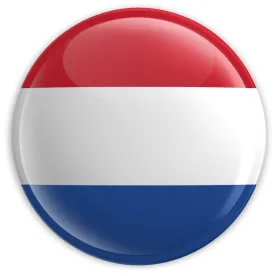The Netherlands
A. Dutch NCA Decisions
Approval change day-ahead capacity calculation for Core.
On June 4, 2021, the Dutch Authority for Consumers and Markets (ACM) approved the proposal of TenneT TSO B.V. to amend the day-ahead capacity calculation methodology for the Core region, taking into account the revisions by the regulatory authorities of the Core region. This methodology promotes free trade in electricity in Europe and contributes to an affordable, reliable, and sustainable energy supply. The ACM concludes that it has not been found that the proposal is contrary to the provisions of the CACM Regulation.
According to Article 20 of the Commission Regulation (EU) 2015/22 on establishing a guideline on capacity allocation and congestion management (CACM Regulation), Core region transmission system operators should develop a proposal for a common coordinated day-ahead capacity calculation methodology for the Core region. The proposal includes the following amendments on the methodology established by ACER: adjustments to the process of establishing the Flow Reliability Margin (FRM), addition of the extended LTA inclusion process, addition of provisions to allow a non-EU country to provide inputs for the day-ahead capacity calculation methodology, adaptation to the article on the fallback procedure, and change of the date for go-live of the methodology. The transmission system operators of the Core region have drawn up the proposal jointly.
On June 22, 2021, the ACM announced approval of health insurers and hospitals’ agreements on financial support in 2021 to prevent major negative consequences of the COVID-19 pandemic. The agreements ensure continuity of care for current and future patients during and after the pandemic. However, the ACM will monitor the agreements to ensure implementation in practice does not harm patients and insured persons.
The ACM calls attention to the partial agreements about catch-up care and expensive medicine. Due to the pandemic, a lot of delayed regular care must now be provided. The ACM warns that hospitals and health insurers should not make agreements that exclude other health care providers, such as independent treatment centers, as part of catching up on regular care treatments. Such agreements hinder competition and damage the backlog. Expensive medicine has been agreed to guarantee hospitals the same margin as in 2020. Based on its market research, the ACM concluded that the agreement does not have a significant negative impact on the incentives for hospitals to actively and competitively purchase in the interest of patients and insured citizens. All agreements must be limited to 2021.
ACM fines manufacturer Leadiant for excessive price of drug CDCA.
On July 19, 2021, the ACM found that manufacturer Leadiant charged an excessive price for the drug CDCA-Leadiant. The ACM ruled that Leadiant abused its economic dominance and imposed a fine of EUR 19,569,500.
CDCA-Leadiant has been used for years under different names and at much lower prices. In 2008, Leadiant acquired a CDCA-based product. The maximum price in the Netherlands at that time was EUR 46 per pack of 100 capsules. Over the years the company acquired the right to be the only CDCA-based product to be marketed on the European market for 10 years. Leadiant increased the price several times, peaking at EUR 14,000 in 2017. This led to social outrage, until another player (Amsterdam UMC) was able to prepare the drug in its own pharmacy in January 2020.
The ACM notes that Leadiant held an economic dominant position from June 2017 to December 2019. According to the ACM, the price charged by Leadiant was excessively high and unfair. Excessively high, because the price combined with the low cost and low risks has given Leadiant an excessive return. And unfair because the drug under a different name had been on the market for much longer and at a much lower price. According to the ACM, Leadiant had a particular responsibility to actively and expeditiously achieve a negotiated result at a price that was not excessive. Leadiant has not done this sufficiently and therefore abused its dominant position and breached competition rules.
Acquisition of Deen supermarkets by Albert Heijn, Vomar and DekaMarkt.
On July 9, 2021, the ACM decided that Vomar Voordeelmarkt, DekaMarkt and Albert Heijn may acquire 80 Deen supermarkets. Albert Heijn will acquire 38 locations, Vomar Voordeelmarkt will acquire 23 locations, and DekaMarkt will acquire 19 locations. ACM has cleared this acquisition of 80 locations because these three supermarket chains face sufficient competition from other chains, and because Albert Heijn decided not to acquire a specific Deen location that would have given Albert Hein control of that particular region. Vomar Voordeelmarkt was allowed to acquire that particular location instead.
B. Dutch ACM conducts market study of IP interconnections.
On July 13, 2021, the ACM announced that it had carried out a study into the market for IP interconnections. IP interconnection ensures that different networks can exchange data. As a result, providers of internet access, content, and services are connected to each other so that end-users are properly served. Since ACM’s last study in 2015, the volume of exchanged data has roughly tripled worldwide.
In addition to this increase in volume, the market participants themselves have also grown. Over the past five years, the number of internet providers has decreased as a result of mergers. Data centers have been acquired by other, predominantly U.S. providers. The market for content has become a global market and is also dominated by major competitors.
The ACM sees that, on the market of IP interconnections, economies of scale play an important role in the competitive landscape, like in other digital and tech markets. That makes it more difficult for smaller competitors and new entrants to enter those markets and to grow. However, such smaller competitors and new entrants are important for competition and innovation in the long run on the market for IP interconnections.
C. Dutch Courts
Rotterdam District Court allows ACM to publish fines imposed on sellers of deed paper.
On July 1, 2021, the ACM published data about fines imposed in a cartel case involving notary paper (special paper that notaries in the Netherlands must use, for example, for mortgages and deeds of purchase). This publication follows a May 11, 2021 order from the District Court of Rotterdam holding that the ACM could publish the 2017 imposed fines. The court upheld the cartel violation and the liability of Koninklijke Joh. Enschedé (KJE) as parent company of its then-subsidiary Joh. Enschedé Amsterdam (JEA) for secret illegal price-fixing agreements in order to limit competition among one another. These suppliers were JEA, Centraal Inkoopbureau (CIB), and XLPapier (XLP).
CIB and XLP had agreed with JEA that they would set their prices no more than 5% below JEA’s price. CIB and XLP each knew that the other had made the same agreement with JEA. At the end of each year, JEA sent its new selling prices to CIB and XLP, so that they could adjust their prices. Based on the available evidence, ACM found that JEA, CIB, and XLP each enforced compliance with the 5% rule. One special aspect of this case was that JEA supplied notary paper to CIB and XLP (wholesale) but also sold notary paper to notaries directly. CIB and XLP were therefore JEA’s buyers and competitors at the same time. The parties involved therefore argued that the agreements had to be regarded as arrangements between manufacturer and buyer. The ACM, however, argued that the parties involved coordinated the prices that they charged notaries among each other as competitors. The court confirmed ACM’s opinion and established that cartel agreements were made between competitors.
The Hague District Court holds that ACM handled digital evidence correctly during company visit.
At the end of 2019, the ACM raided several large traders in the agricultural sector. These raids focused on possible prohibited agreements on the purchase price that these traders pay to farmers. During the raids, the ACM also found indications of possible agreements about the sale of products and for the involvement of another company in the agreements. This prompted the ACM to expand its investigation.
The material on which the ACM based the expansion of its investigation was found in the digital environment of the companies (chats on mobile phones and emails). The companies stated that the ACM should not have used that material to expand the investigation. According to them, the ACM should only have briefly looked at whether the material was relevant to its investigation. In addition, the companies did not agree with the way in which the ACM had selected the chats relevant to its investigation.
In an opinion published on July 12, 2021, the Hague District Court held that the ACM did no more than briefly review chats and emails relevant to the investigation. In these chats and emails, other (suspicious) cases were also discussed, and it was therefore not surprising that the ACM encountered this during its investigation. The ACM did not have to ignore these indications of other violations and was therefore allowed to expand its investigation. In addition, the way in which the ACM selects relevant chats – by entering names of relevant people into a chat program – was ruled proportional.
United Kingdom
A. UK Merger Control
Phase 2 merger references have been at a low ebb in the UK this year, but two came along within a couple of weeks of each other in July.
On July 13, 2021, the UK Competition and Markets (CMA) referred the proposed merger of two manufacturers of cargo-handling equipment for a Phase 2 investigation, based on concerns that the merger would substantially lessen competition in the UK supply of reach stackers, straddle carriers, and gantry cranes. The CMA made the reference after the parties asked it to use its fast-track procedure to send the transaction to Phase 2.
The merger is also under investigation in the United States, EU, and China. The European Commission referred it to a Phase 2 investigation under the EU Merger Regulation on July 2, 2021. The timetable for the CMA decision is Dec. 27, 2021. The timetable for an EU decision is less certain, as the EU suspended its investigation on July 22, so the original deadline of Nov. 10, 2021, will be extended by the period of suspension. Regulators often suspend their investigation where the parties are unable to provide information by a specified deadline.
Then, on July 27, the CMA referred the anticipated acquisition of the passive infrastructure assets of CK Hutchison Networks Europe Investments S.À R.L in the UK by Cellnex UK Limited. Passive infrastructure assets are towers and masts to which mobile network operators and other wireless communication network providers attach electronic equipment in order to operate their networks. The CMA’s concerns are that Cellnex is already by some distance the largest independent supplier of mobile towers in the UK, having acquired a similar business in 2020, and that the transaction will further strengthen its market position, resulting in higher prices or lower quality services for network operators, with an indirect impact on users of mobile networks across the UK. The timetable for the CMA decision is Jan. 10, 2022.
B. Antitrust Enforcement: Pharmaceutical Industry.
The CMA has been particularly active in enforcing the UK competition rules in the pharmaceutical sector recently. In particular, the CMA has been vocal about the impact of the infringements it has investigated on the finances of the UK taxpayer-funded UK National Health Service (NHS), which is by far the largest purchaser of drugs in the UK.
On July 9, 2021, the CMA announced that it had imposed fines of just under £2.3 million on three suppliers of fludrocortisone, for operating a market-sharing agreement that increased the price paid by the NHS for the drug by 1,800%. Two of the suppliers, Amilco and Tiofarma, had agreed to stay out of the market for fludrocortisone, in exchange for compensation provided by the third supplier, Aspen. Amilco received a 30% share of Aspen’s increase in prices for the drug, and Tiofarma received sole rights to manufacture the drug for direct sale in the UK. An important feature of the case is Aspen’s approach to the CMA in 2020 with an offer to pay £8 million to the NHS, to help resolve the CMA’s concerns and settle the investigation.
The size of the fines, and the impact on NHS costs in the fludrocortisone case, were small in comparison to those in the CMA’s decision on July 15 to impose fines of over £260 million on suppliers of hydrocortisone tablets. It found that the sole supplier of the tablets, Auden McKenzie, which was taken over by Actavis UK in 2015, had abused its market-dominant position by charging excessive prices to the NHS between 2008 and 2018, raising prices paid by the NHS by over 10,000% and increasing NHS annual spending on these tablets from £500,000 in 2007 to over £80 million in 2016. The company also entered into illegal market-sharing agreements lasting four years with two potential competitors, Advanz Pharma and Waymade, who agreed not to put their own generic hydrocortisone tablets on the UK market in exchange for monthly compensation payments from Auden Mckenzie. In its press release announcing the fines, the CMA highlighted the fact that its decision enables the NHS to seek damages from the three suppliers, should it choose to do so.
C. Long-term exclusive agreements: electric vehicle charging points at motorway service stations.
On July 22, 2021, the CMA announced an investigation into long-term exclusive agreements concluded by Electric Highway Company Limited and Ecotricity Group Limited with three motorway service area operators, Moto Hospitality Limited, Roadchef Limited, and Extra MSA Holdings (UK) Limited. The CMA’s concern is that there is a lack of choice and availability of chargepoints at UK motorway service stations, where competition is limited. The decision to investigate comes after conclusion of the CMA’s study of the wider electric vehicle charging sector. Its report on this study, published July 23, 2021, identifies that targeted interventions are necessary to kickstart more investment and unlock competition in specific parts of the sector, including motorway charging.
Italy
A. Italian Competition Authority (ICA) launched a non-compliance procedure against Autostrade per l'Italia
On July 13, 2021, ICA opened a non-compliance procedure against Autostrade per l'Italia S.p.A. (ASPI) - the company awarded the concession for the operation and maintenance of over 3,000 km of freeway network in Italy - for having failed to comply with the ICA’s previous resolutions.
On March 16, ICA imposed a fine of EUR 5 million on ASPI and declared certain of ASPI’s commercial practices to be unfair, resulting in consumers paying full tariffs on freeway sections affected by significant road problems. These problems were mainly caused by extraordinary works to be carried out to preserve the safety of several infrastructures that suffered as a result of serious deficiencies in management and maintenance. In ICA’s view, ASPI had not ceased the above-mentioned conducts and, in particular, had neither reduced the toll costs nor adopted any procedures for granting tariff reductions and refunds to consumers.
By its decision of July 13, ICA declared the measure implemented by ASPI insufficient and not suitable to address ICA’s concerns, considering that these measures were mostly of an informative nature and did not involve a reduction in toll payments. For these reasons, ICA determined the conditions for initiating the procedure for non-compliance met; this procedure entails the imposition of a further financial penalty from 10,000 to 5,000,000 Euros, pursuant to Article 27, paragraph 12, of the Italian Consumer Code.
B. ICA opens an investigation on the restrictive effects of an agreement between TIM and DAZN.
On July 6, 2021, ICA opened an investigation into a possible violation of Article 101 of the Treaty on the Functioning of the European Union (TFEU) in relation to certain clauses of an agreement entered into between TIM S.p.A. and DAZN Limited - through its Italian subsidiary DAZN Media Services S.r.l - for the distribution and technological support relating to the audiovisual rights for Serie A soccer championship matches from 2021 through 2024.
The procedure was initiated following reports received from leading telecommunications operators, as well as the audiovisual media services provider Sky Italia S.r.l., highlighting the possible restrictive effects of the agreement in question on competition on the pay-TV market and on retail/wholesale fixed-broadband, ultra-wideband, mobile and telecommunications services markets.
The investigation launched by the ICA is aimed at ascertaining the alleged restrictive nature of the clauses of the agreement that commercially limit DAZN’s offering of pay-TV services, with the possible effect of, among other things, reducing its ability to offer discounts to end users and hindering other telecommunications operators from undertaking any commercial initiatives. In addition, ICA is investigating the possible adoption by TIM of technical solutions that are not available to competing telecommunications operators and that could result in obstacles to the adoption of its own technological solutions.
Eduardo Gambaro, Pamela J. Maple, Yuji Ogiwara, Stephen M. Pepper, Gillian Sproul, Hans Urlus, Dawn Zhang, Mari Arakawa, Filip Drgas, Marta Kownacka, Pietro Missanelli, Massimiliano Pizzonia, Anna Rajchert, Jose Abel Rivera-Pedroza, Ippei Suzuki, Chazz Sutherland, Rebecca Tracy Rotem, and Alan Hersh contributed to this article.







 />i
/>i
